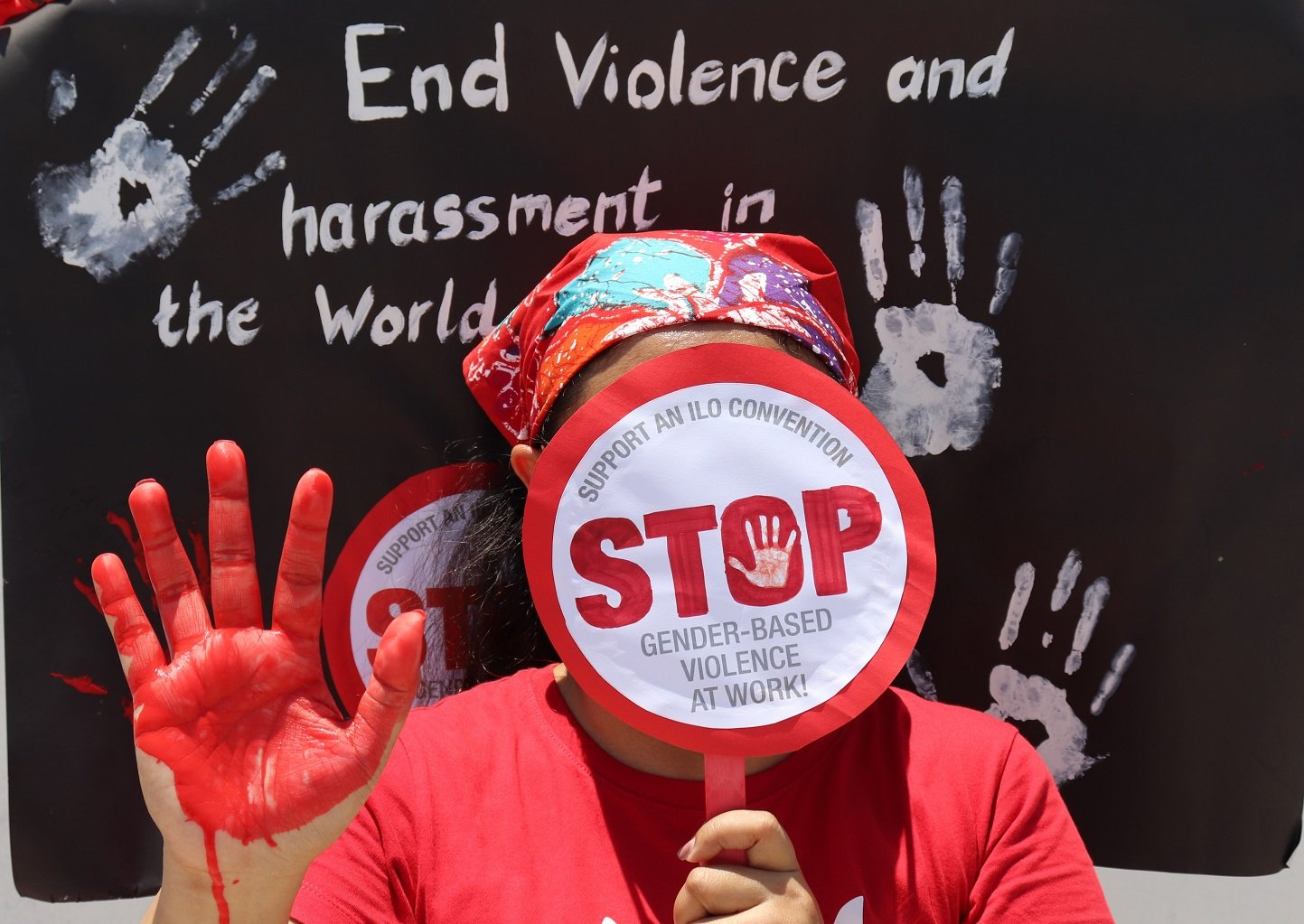Statement by the Global Alliance Against Traffic in Women on International Women’s Day 2020

Women migrant workers experience a continuum of gender-based violence and harassment, ranging from insults to severe physical abuse, sexual assault, psychological abuse, bullying and intimidation.
This gender-based violence cannot be considered in isolation from the patriarchal stereotypes about women’s place in society, the value of their labour, and the violence that women are subjected to throughout their lives.
One migrant domestic worker from Bangladesh shared, “I was being abused physically and mentally by my husband but how could I go and complain? What will society say? Because we are women we have to tolerate such abuses.”
A migrant garment worker from Guatemala said, “In our homes, people think that women have to do everything and receive less payment, and because they teach you that at home, then you think that it is normal and you internalise it.”
Women migrant workers described being pushed into precarious work with little choice because of a lack of jobs in their home countries, debt, economic hardship and the breadwinner role falling on women.
This is in part due to macro-level economic decisions: structural adjustment policies, austerity measures, neoliberal reforms to the public sector, and public services that have increased the demand for jobs predominantly carried out by women.
Ninety per cent of the women interviewed in Cambodia said they were driven to migration for garment work to repay a debt to a microfinancing institution.
Women garment workers in Brazil said that due to piece-rate payment schemes, they had to work 18-hour days in order to make just enough money to survive – an amount still only two thirds of the national minimum wage. They were also paid less than men for doing the same work.
Many domestic workers shared stories of sexual violence, often perpetrated by male family members living in the house.
One Bangladeshi woman said, “My employers’ son always came in wherever I was in the bathroom, kitchen, roof top, or veranda. He used to touch my breasts and other sensitive parts of my body. There was nothing I could do.”
In addition to sexual abuse, domestic workers frequently reported punishing working hours, substandard living and working conditions, and insufficient food. Many worked all week, without a day off, and had to continue working even when they were sick.
A Ugandan domestic worker recounted being shouted at, “You are not allowed to fall sick! We have paid a lot of money for you to come and work, so you have to pay it back by working. Get up!”
Institutional violence was common too, with most women not reporting their exploitative working conditions to the authorities for fears of losing their jobs, being detained and deported, or simply not believed.
One Bangladeshi woman said “I called [the Embassy] to tell them about my abuse and I was shocked. They started shouting at me and told me to stay and work in the same house otherwise they will send me back after getting their damage money.”
Sex workers in Mexico reported threats, gang rape, false accusations and extortion by the police: “They ask us 200 pesos a day to let us work. When we don’t pay, they take us into custody or they steal money from the client they find us with.”
Street vendors in Argentina reported physical and verbal abuse, and removal of their merchandise by the police. One woman said “I see many colleagues whose things are taken away. How can you report, what can you do? They have the gun in their hands.”
On International Women’s Day 2020, the Global Alliance Against Traffic in Women calls on States to:
- Ratify, and effectively implement, ILO Convention 190 and Recommendation 206 without delay, in full and meaningful consultation with all workers, including informal workers, and their organisations.
- Ensure women have access to decent work, living wage, equal pay for work of equal value, right to organise and bargain collectively, permanent jobs and paid leave.
- Abolish the sponsorship system for migrant workers, improve monitoring of recruitment and migration systems, and end gender and age discriminatory restrictions on migration.
- Strengthen the quality, accessibility and affordability of public services by keeping them inclusive of marginalised groups, and in public control. Ensure adequate funding for public services through progressive taxation for high earners and elimination of tax incentives for corporates.
The findings are based on research among women migrant workers carried out for GAATW by thirty organisations and individuals across twenty-two countries in Asia, Africa and Latin America. The aim of the research was to document the nature of violence, harassment and exploitation that women migrant workers face, how they deal with it, and their demands for change.
For more information about these researches see:
Learning from the Lived Experiences of Women Migrant Workers
‘A Job at Any Cost’: Experiences of African Women Migrant Domestic Workers in the Middle East
